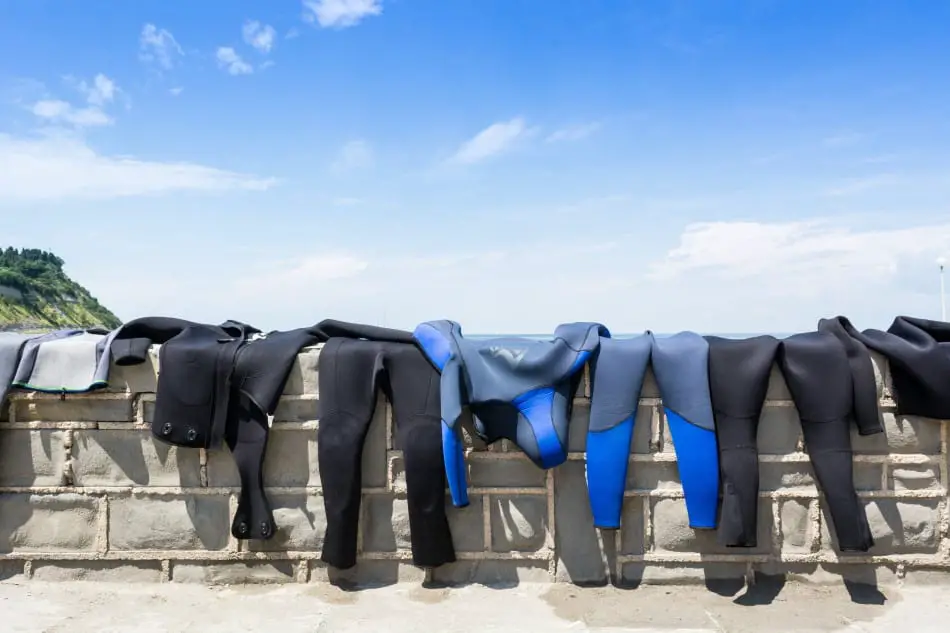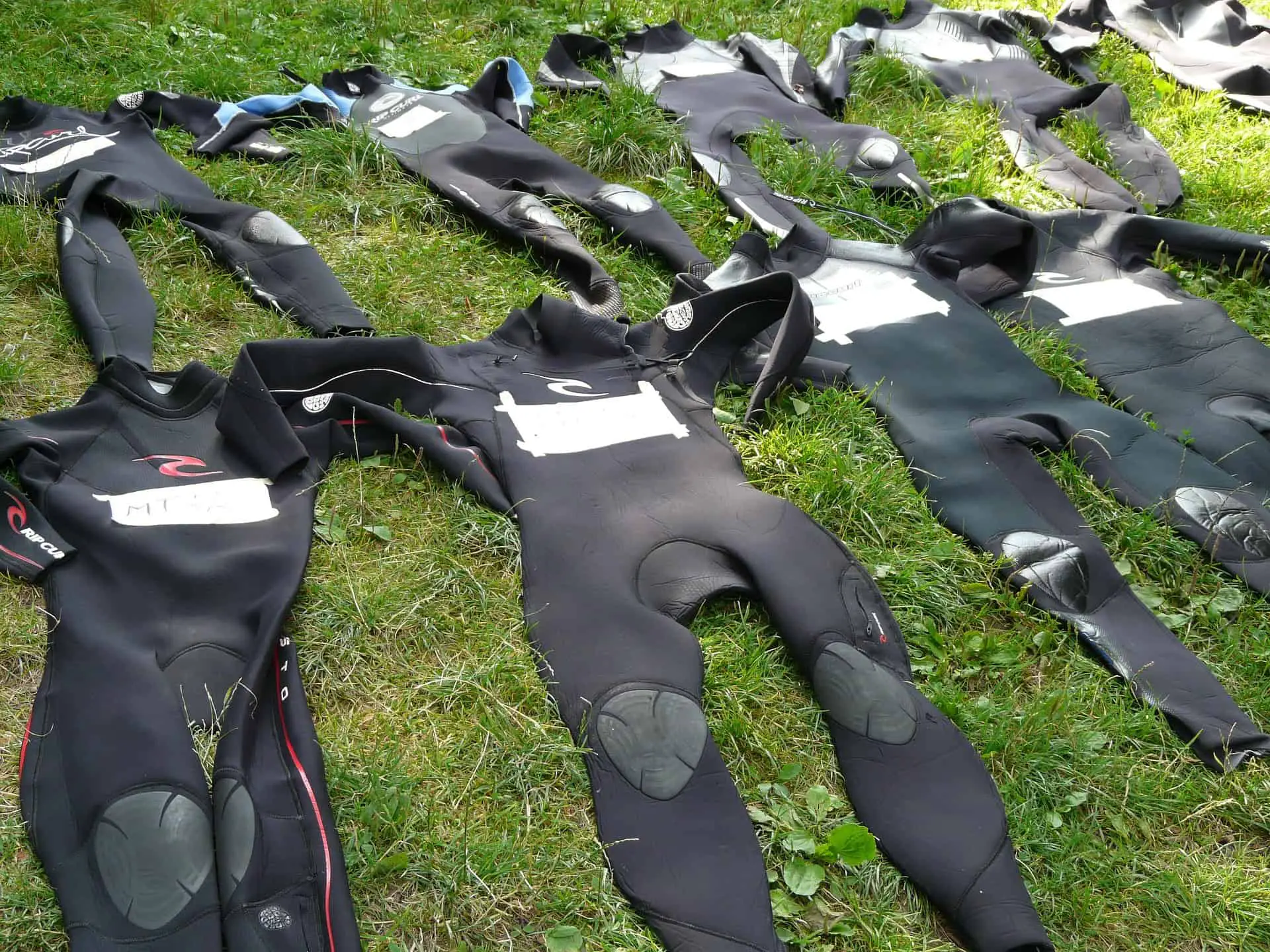Peeing in your Wetsuit
One of the things that no one wants to talk about (but everyone wants to hear about) is how to deal with bodily functions while scuba diving.
More specifically, what in the world are you supposed to do when you have to pee? Is the urine going to damage your suit? What about drysuits?
The truth is, everyone at some point or another wonders what the etiquette is about urinating during a dive. Well, even if no one else wants to bring it up, we’re willing to go there with you so that you don’t have to ask these uncomfortable questions to your diving instructor or buddy.
So, why is this such a big deal?
You’re only going to be under the water for thirty minutes to an hour, so is it really necessary to think so much about having to use the restroom?
Well, on the one hand, yes, you’re only going to be in the water with your gear for a limited amount of time. However, you should also consider the amount of time it will take for you to get from the dock out to your dive site and back. If your boat doesn’t have a bathroom on board and you’re going to be in your wetsuit the entire time, chances are, you’re going to have to pee at least once.
And there’s another consideration here. While you may normally be able to go a few hours without having to use the restroom, things are a bit different underwater. For a few reasons which we’ll outline, scuba diving induces urination in ways that you wouldn’t typically experience.

The science of immersion diuresis
When you’re underwater, your body undergoes a process of diuresis, or an increase in urination, for a couple of reasons. Some explanations scientists are really clear on, and others are still waiting on more scuba research to confirm. Here’s the gist.
Temperature
This one the field can agree on. When your body is cold, it will naturally react by restricting the blood flow in the outer extremities.
This is to make sure that your core body temperature stays nice and toasty. As blood moves inward, blood pressure rises and sets off warnings that liquid is building up where it shouldn’t be.
In response, your body will look for ways to release liquid, the most efficient being through urination. At the same time, this increase in blood flow to the heart means that other organs are also experiencing a rise in blood flow, thus spurring the kidneys to produce urine at a higher rate.
Other Factors
While pretty much everyone can agree that temperature has a huge impact on diuresis, there are a few other theories as well.
Blood Flow
One is that the practice of floating in the water allows for this redistribution of blood flow as well. When we’re standing upright on the dock, in other words, blood naturally flows into the limbs as a result of gravity. In a horizontal position, though, the blood is more likely to stay centered, triggering the response that we just laid out.
Others think that it’s not the position so much as the effect of water pressure that constricts blood flow in the limbs.
Clearly, the field of scuba diving science hasn’t quite caught up with the intricate process of diuresis but the takeaway is the same: you will have to go pee underwater.
Great, now what can you do about it?

Closed Cell vs Open Cell Wetsuits – Which is best for Scuba Diving?
What to do when you have to go?
Well, this is going to depend on what kind of diving suit you have on.
Wetsuit
If and when the need strikes, simply go. Your diving partner is not going to know, and probably isn’t going to care anyway. Plus, it’s much better than missing out on the wonderful underwater world around you because you can’t focus on anything other than how much longer you have to wait to ascend.
That said, you should probably take a couple of steps to make sure your wetsuit stays clean between dives. You can do this by rinsing your suit, inside and outside, vigorously after each dive, and treating it to an occasional wash with wetsuit-specific cleanser.
Drysuit
Alright, this is a little bit more complicated. You cannot actually pee in a drysuit. But never fear, there are a few clever tricks to get around the problem.
Use Diapers in your Drysuit
Some divers, for instance, utilize adult diapers. Although it may seem a little absurd, diapers will allow you to dive without giving a second thought to how you’re going to deal with the urge.
P-Valve
Another option, the p-valve. This helpful device will allow you to urinate through a tube that connects to the outer lining of your drysuit. Some divers admit that this method can be a bit frustrating if things aren’t set up properly, but it overall gets the job done.
If you do end up getting the inside of your drysuit wet, you can simply wash it as you normally would: by hand, with gentle soap, and in warm water. In other words, you’re not going to damage the suit with urine; it’s just going to be uncomfortable during your dive.
Stay Hydrated – No Matter What
One misstep that a lot of new divers make is to restrict hydration before diving. Not only will this not really work (you’d be surprised at how efficient the body is at extracting liquid even if you didn’t drink too much) but it’s also dangerous. Scuba diving is a physical activity that requires you to be healthy and hydrated, so no skipping out on the water before your dive!
Final tips: lay off the diuretics like coffee and stay away from alcohol completely.
And there you have it!
Hopefully, we’ve answered most of the questions you’ve been hesitant to ask your diving buddies, and no matter how you choose to deal with this annoying little problem, you now know more than you ever thought you would about urination and diuresis!


